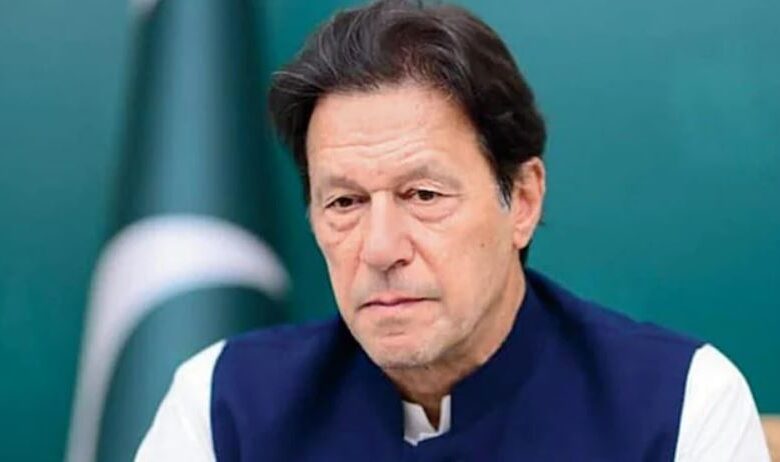
Prime Ministers of Pakistan have a long and illustrious history:
Since the country’s independence in 1947, no Pakistani Prime Minister has served a full five-year term. Imran Khan, a professional cricketer who became a, has become the latest Pakistani Prime Minister to fail to complete his full time in power. It has been a turbulent history for Pakistan’s Prime Ministers, which has been distinguished by the Army’s extended periods of rule in the country.
The history of the Pakistani Prime Ministership can be summarised in the following points
• Since the country’s independence in 1947, no Pakistani Prime Minister has served a full five-year term. In contrast to the three prime ministers who have served for four years in office, five more – including Imran Khan – have served for at least three years in power.
• So far, Pakistan has had 19 different Prime Ministers. While Nawaz Sharif served as Prime Minister three times, his arch-rival Benazir Bhutto served in the role twice. Both leaders, like other prime ministers, we’re unable to complete their periods in office. There have also been seven caretakers Prime Ministers throughout this time period.
• The Military has overthrown three civilian governments in the country’s history. In 1958, the administration of Feroz Khan Noor was ousted, and Martial Law was declared under the leadership of Gen Ayub Khan. In a coup dubbed “Operation Fair play,” General Zia ul Haq deposed Zulfikar Ali Bhutto, who had been in power since 1977. In the third occurrence, in October 1999, General Pervez Musharraf toppled Nawaz Sharif, who had been in power since 1977.
• President of Pakistan has been four times, and they have controlled the country for 32 of the country’s 75 years. General Zia served as President of the States from 1978 until 1988 while also serving as the army’s chief of staff. From 1969 to 1971, Gen Yahya Khan served as both army chief of staff and president of the Republic of Pakistan. Between 2001 and 2007, Gen Musharraf was able to replicate the feat. After assuming the position of President, Ayub Khan raised himself to the rank of Field Marshal.
• So far, five prime ministers have served as ministries under a military ruler. Nurul Amin was the first person to hold the position of Prime Minister under Gen Yahya Khan for a short period of time. From 2004 to 2007, Shaukat Aziz was the only Prime Minister to serve under an army leader who also served as president.
• Nawaz Sharif was Prime Minister of Pakistan for three non-consecutive terms, for a total of nine and a half years. However, he was forced to resign from his position twice – in 1993 and 2017 – after being accused of corruption. He also had to deal with a military coup in 1999.
• Liaquat Ali Khan, Pakistan’s first prime minister, holds the record for serving the longest single term in the country’s history. Before being killed on October 16, 1951, he had served as Prime Minister for 1,524 days (which seems longer in years?). Notably, he is the only Pakistani prime minister to have died while in office.
• While serving as Prime Minister during the 1971 war, Nurul Amin, a well-known Bengali politician, was in office for only 13 days. He also served as Vice President of the United States between 1971 and 1973, making him the only Pakistani to hold the position.
• Pakistan’s first general elections were held 23 years after the country gained independence. Awami League candidates won all but two seats in East Pakistan in 1970, while the Pakistan Peoples Party gained a majority of seats in West Pakistan, according to the 1970 elections results. The ensuing political upheaval had a role in the establishment of the Bangladesh Republic.
• Pakistan had seven Prime Ministers in its first 11 years of existence. Following Liaquat Ali Khan’s assassination in 1951, the role was held by six different people over the next seven years. With two years and 117 days under his belt, Mohammad Ali Bogra was in the job for the longest stretch of time throughout the turbulent teen years.
FAQs
1: Is there a prime minister in Pakistan who has served for five years?
• On June 5, 2013, Sharif was re-elected to a third non-consecutive term as Prime Minister of Pakistan, setting a new record in the country’s political history. No Prime Minister of Pakistan has yet completed the full five-year tenure that was originally agreed upon.
Who has held the position of prime minister for the longest period of time?
Between 3 April 1721 and 11 February 1742, Sir Robert Walpole was the prime minister who served the longest single tenure in British history, serving for a total of 20 years and 315 days. This is also far longer than the total number of terms served by any other prime minister.
What is a vote of no-confidence in Pakistan and how does it work?
• An expression or vote of no confidence in a person in a position of responsibility (government, management, etc.) is a statement or vote on whether that person should continue to hold that position, for example, because they are inadequate in some aspect, fail to carry out their responsibilities, or make decisions that other members believe are detrimental to the organisation. The legislative motion serves as a demonstration to the head of state that the elected Parliament either has confidence in one or more members of the appointed government, or has lost confidence in one or more members of the appointed government. According to the laws of several nations, a vote of no confidence cast against a specific minister entails the resignation of that minister. Generally, if the minister in question is the premier, all other ministries must also quit in order for the resignation to be effective.
If an assembly is dismissed, what occurs next?
• The dissolution of a legislative assembly is the necessary simultaneous resignation of all of its members in anticipation of a subsequent legislative assembly convening later with members who may be different from those who served in the previous parliamentary assembly. An election for the new assembly is held in a democracy, and the results are announced by the people.
What are Pakistan’s societal problem?
• Our country has faced numerous challenges since its founding, including poverty, unemployment, crime, women’s subjugation, child marriage and rape. We have also struggled with gender inequality and a lack of political representation for women. These are the societal issues facing Pakistan that, if addressed, have the potential to make living more comfortable and society more productive in some ways.
What is the reason that no prime minister has served a full five-year term?
• In the history of the country, no prime minister had ever served the full term of his or her office. Pakistan will celebrate its 75th birthday in August of this year. Every prime minister in Pakistan since 1947 had been allowed to serve out his or her full five-year term, today’s Prime Minister Imran Khan would have been the country’s 15th leader. Khan, on the other hand, is the 22nd prime minister of the country. In the history of the country, no prime minister had ever served the full term of his or her office.




